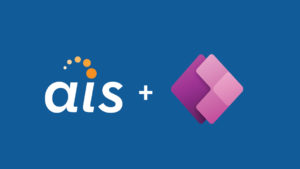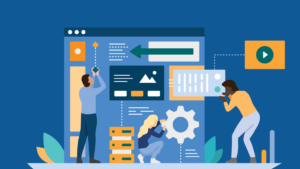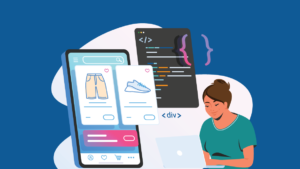 Microsoft has revamped its licensing model for Dynamics CRM 2013. Here’s a summary of the information from the latest Microsoft documentation.
Microsoft has revamped its licensing model for Dynamics CRM 2013. Here’s a summary of the information from the latest Microsoft documentation.
There are three basic versions of Microsoft Dynamics CRM 2013, and each has its own particular licensing requirements:
- Microsoft Dynamics CRM 2013 On-Premises: Most useful for organizations that do their deployments in-house. You must purchase a license for each server that will run the CRM Server software. You must also purchase Client Access License (CAL) for each user or device that will access the software.
- Microsoft Dynamics CRM 2013 Online: Used for solutions that will be hosted in the cloud. You must purchase a User Subscription License (USL) for each user that will access the solution. USLs are assigned to a named user, which means that USLs cannot be shared. A single USL licenses the user to access any instance of Microsoft Dynamics CRM 2013 or earlier associated with the same tenant. (USLs do not include use rights for Yammer or Skype.)
- Microsoft Dynamics CRM 2013 SPLA: Used by service providers and independent software vendors who license CRM to provide solutions to customers. You must purchase a Subscriber Access License (SAL) for each unique individual user who is authorized to access or otherwise use the licensed products. SALs are assigned to a named user, which means that SALs cannot be shared. A SAL will authorize a user to access any number of instances of CRM 2013 or earlier running on the organization’s servers.
Only internal users are required to have a license to access the CRM solution. External users do not require licenses unless they are using CRM client applications and the graphical user interface (GUI).
External User Definitions
| CRM 2013 On-Premises | CRM 2013 Online | CRM 2013 SPLA |
| For Microsoft Dynamics CRM On-Premises licenses, External users are not either your or your affiliate’s employees, or your affiliate’s onsite contractors or onsite agents. | For Microsoft Dynamics CRM Online licenses, external users are not (i) the customer’s or the customer’s affiliate’s employees, or (ii) the customer’s or the customer’s affiliate’s contractors or agents. | For SPLA licenses, External users are users that are not either your or your affiliate’s employees, or your or your affiliate’s onsite contractors or onsite agents. |
Licensed users or devices can access the solution functionality using Microsoft Dynamics CRM for Outlook, Microsoft Dynamics CRM web applications, Microsoft Dynamics CRM Mobile express, and Microsoft Dynamics CRM for iPad & Windows 8. Access to Microsoft Dynamics CRM through Microsoft Dynamics for iPad and Windows 7 is included with every access license. You can also purchase Additive access licenses which allow you to step up from a lower level license to a higher level license. Multiplexing does not reduce the number of required access licenses.
The CAL, the USL and the SAL all have the same three levels of licenses. They range from lowest to highest in terms of usage rights, and are priced accordingly.
- Professional: For advanced system users who need access to extended CRM functionality, including customization and configuration, and the management of system dashboards, charts, workflows and dialogues.
- Basic: For entry-level CRM users who need access to basic CRM functionality, including reporting and personal dashboards.
- Essential: For users who only need lightweight access to custom applications, such as read-write access to custom application data.
On-Premises Licensing
For CRM 2013 On-Premises, there are two types of Client Access Licenses (CALs):
- User CAL: Assigned to a particular user, it allows the user to access the solution from any device. This type of CAL is perfect for companies where employees need to have roaming access to their corporate network.
- Device CAL: Assigned to a particular device. This type of CAL is perfect for companies where employees share devices, as may be the case for shift workers.
You can mix and match CAL types to fit the needs of your users. You can license either the user or the device, and you do not need to license both at the same time.
There are also two available Server License Editions:
- Microsoft Dynamics CRM Server 2013: Supports an unlimited number of users. However, users must have a CAL to access the solution.
- Microsoft Dynamics CRM Workgroup Server 2013: Includes access for up to five users without requiring CALs. Additional users can be added by purchasing a Step-Up license to Microsoft Dynamics Server 2013, and purchasing additional CALs as needed.
Licensed users and devices can access any number of instances or Microsoft Dynamics CRM 2013 or earlier running on the organization’s licensed servers.
There is one exception to the Server + CAL rule for licensing, and that is in the case of administrative users of the server software. Microsoft Dynamics CRM Server 2013 allows for up to two separate users or devices to access the server software without consuming a CAL. Likewise, the Microsoft Dynamics CRM Workgroup Server 2013 includes administrative user access to the software without consuming the five users included with the software.
For more detailed information, including estimated pricing, here are links to the Microsoft licensing guides:
Microsoft Dynamics CRM 2013 On-Premises Licensing and Pricing Guide
Microsoft Dynamics CRM 2013 Services Provide Licensing Agreement Licensing and Pricing Guide
Microsoft Dynamics CRM 2013 Online Licensing and Pricing Guide






